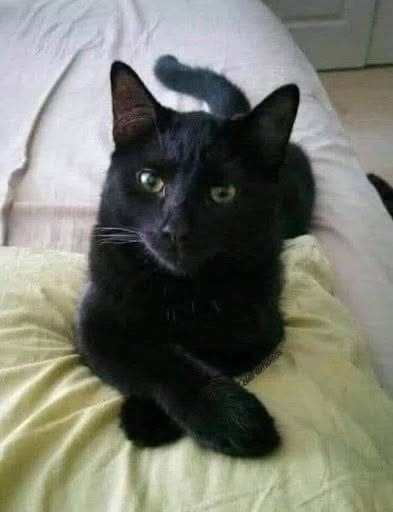
Where Folklore Meets Reality
Black cats sit at a crossroads of legend and everyday life. Their sudden appearance often raises the question: is this just an ordinary animal, or is something more profound at play?
Echoes from Medieval Europe
In medieval Europe, black cats were often viewed with suspicion and fear. Their dark fur and nocturnal habits led many to believe they were connected to witches—either as their companions or as witches in disguise.
Superstitions ran rampant, with many convinced that a black cat crossing one’s path brought doom or death. During the witch hunts, cats suffered alongside their owners. Ironically, this decimation of cats allowed rodent populations to flourish, worsening outbreaks like the plague.
In reality, the absence of these cats caused more harm than their presence ever did.
Black Cats as Symbols of Good Luck Worldwide
Not all cultures feared black cats. In fact, many embraced them as lucky or protective creatures:
Japan: A black cat crossing your path is considered good fortune, especially attracting love and prosperity for single women.
UK & Scotland: Coastal communities saw black cats as guardians, with sailors’ wives keeping them to ensure safe journeys.
Ancient Egypt: Cats were sacred, and black cats were associated with Bastet, goddess of home and fertility. Harming one was a serious crime.
Celtic Lore: Black cats were protectors of the spirit world, warding off evil and keeping homes safe.
Clearly, the meaning of a black cat depends on cultural and spiritual context.
From Old Superstitions to Modern Celebrations
Today, black cats still carry symbolic weight. In Western culture, they’re linked to Halloween and mystery, while as pets, they’re admired for their sleek beauty and charm.
Still, some superstitions persist—animal shelters often note that black cats are adopted less frequently, especially around October. Yet many cat lovers are drawn to their unique allure and strong spirit.
Now, when a black cat approaches you, it might reflect your own beliefs more than fate itself. Is it a warning? Or a playful cosmic nod?
The Science Behind Their Approach
Beyond myths, cats behave based on instincts. Experts say cats approach people who seem calm, safe, or likely to offer treats. A black cat walking toward you might just be curious—or hungry.
Cats also pick up on emotions, sensing moods and body language. If a cat comes your way, it could mean you seem approachable at that moment.
This mix of natural behavior and legend keeps black cats wrapped in layers of meaning.
Symbols of Paradox
Black cats embody contradiction: they are seen as both lucky and unlucky, mystical and ordinary, feared and cherished.
Their appearance encourages us to pause and reflect—is this chance, or a message? Should we worry, or smile?
They also represent resilience. Despite centuries of superstition and persecution, black cats persist. They remind us that meaning is fluid, shaped by how we choose to see the world.
What a Black Cat Might Mean to You
When a black cat crosses your path, its meaning depends on your perspective:
Folklore: A sign—either cautionary or fortunate.
Culture: A symbol of protection, wealth, or affection.
Science: An expression of curiosity or comfort.
Spiritually: An invitation to trust your intuition or embrace mystery.
Whatever you believe, one thing is certain: the moment is never ordinary.
The Enduring Enigma
Black cats captivate because they exist between two worlds—the magical and the everyday. Their shiny coats gleam in the moonlight, their eyes glow with quiet intelligence, and their presence feels charged with deeper meaning.
Is it destiny? Tradition? Or just a friendly cat?
The answer is yours to decide. But one truth remains: black cats are never just background figures. They are living symbols of mystery, strength, and possibility—encouraging us to rethink the stories we tell about the
World